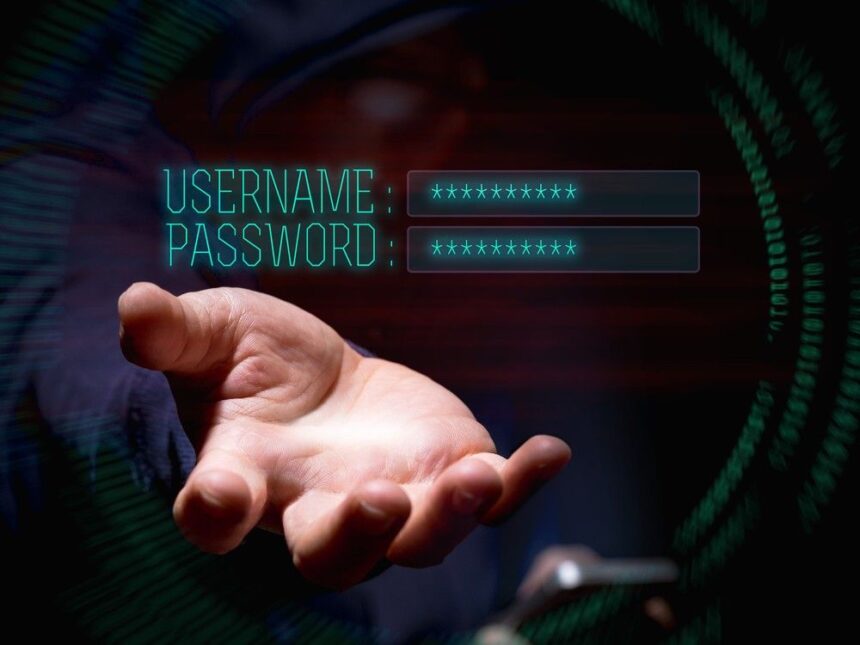Article – I just opened my laptop at a local Toronto café when a friend texted me: “Have you heard about the password leak? Should I be worried?” After digging into the story developing across cybersecurity circles, I realized this wasn’t just another routine data breach.
The so-called “mother of all breaches” has reportedly exposed a staggering 16 billion credentials – a compilation of usernames and passwords affecting users of major platforms including Apple, Google, Facebook, and dozens of other services that touch virtually every aspect of our digital lives.
Let’s be clear: this isn’t entirely new data being leaked for the first time. Security researchers indicate this massive database appears to be an aggregation of previous breaches compiled into what might be the largest publicly available collection of compromised credentials ever discovered.
“What makes this particularly concerning isn’t just the size, but the organization,” explains Daniel Tobok, CEO of Toronto-based cybersecurity firm Cytelligence. “This compilation makes it significantly easier for threat actors to launch automated attacks against accounts that might have reused passwords across multiple services.”
The leak was initially discovered by cybersecurity researcher Bob Dyachenko and the Privacy Affairs team, who found the unsecured database containing approximately 26 billion records. The collection includes data from previous breaches at LinkedIn, Twitter (now X), Dropbox, and numerous other platforms stretching back several years.
For Canadians, this revelation comes at a particularly sensitive time. The Canadian Centre for Cyber Security has reported a 25% increase in credential-based attacks against Canadian organizations over the past year. Small businesses and individuals who lack enterprise-grade security measures remain especially vulnerable.
“Most people simply don’t realize how valuable their digital identity has become,” notes Ritesh Kotak, a Toronto-based cybersecurity analyst I spoke with yesterday. “When credentials from one platform are compromised, criminals can quickly attempt to access banking, government services, and corporate accounts using the same login information.”
The mechanics of how this works are surprisingly simple. Attackers use specialized software to attempt “credential stuffing” – automatically trying username and password combinations across thousands of websites simultaneously. If you’ve reused passwords, a breach at one service potentially compromises all your accounts.
According to the Canadian Internet Registration Authority (CIRA), approximately 67% of Canadians use the same password for multiple accounts – creating a significant vulnerability that this compilation of breached data directly exploits.
While major platforms like Apple, Google, and Facebook employ sophisticated security measures including anomaly detection and multi-factor authentication, many smaller services lack these protections. This means your primary accounts might remain secure while secondary services – perhaps a food delivery app linked to your credit card or a retail account storing your address – could be compromised.
The practical implications range from financial fraud to identity theft. In recent cases investigated by the Canadian Anti-Fraud Centre, compromised credentials have led to unauthorized access to government benefit accounts, banking services, and corporate systems.
“The real challenge here is the ripple effect,” explains Eva Villeneuve, a data privacy lawyer with McCarthy Tétrault in Montreal. “Once criminals have valid credentials, they can attempt account recovery on other services, potentially gaining access to email accounts that serve as recovery methods for additional platforms.”
What should concerned Canadians do right now? Cybersecurity experts recommend a staged approach:
First, check if your information appears in known breaches using legitimate services like Have I Been Pwned, which maintains a searchable database of compromised accounts.
Second, change passwords on critical accounts immediately – particularly financial services, email, and government accounts. Use unique, complex passwords for each service.
Third, enable multi-factor authentication wherever available. This creates an additional security layer beyond just passwords.
Fourth, consider using a password manager to generate and store unique credentials for each service you use, making password reuse unnecessary.
“The most vulnerable moment for most Canadians is actually right after a breach announcement,” notes Kotak. “Phishing attempts spike as criminals send fake password reset emails attempting to capture even more credentials.”
Financial institutions across Canada have already begun implementing additional verification steps for online banking access in response to the breach. Several major Canadian banks have temporarily increased security measures for account recovery processes.
For businesses, particularly small and medium enterprises that may lack dedicated security teams, the Canadian Chamber of Commerce recommends conducting immediate password resets across all systems and implementing company-wide multi-factor authentication policies.
The broader implications of this breach highlight systemic issues in our digital ecosystem. While regulations like PIPEDA (Personal Information Protection and Electronic Documents Act) provide a framework for how companies should handle personal information, the enforcement mechanisms remain limited compared to more robust regimes like the European GDPR.
“We’re operating in a digital environment where the consequences of security failures don’t adequately motivate preventative measures,” Villeneuve told me. “Until companies face significant financial penalties for data breaches, we’ll continue seeing these massive compilations of compromised data.”
As I finished researching this story, I received another text from my friend asking if changing their password to something more complex would protect them. The honest answer: it helps, but our digital security now depends on a complex ecosystem of interconnected services, each with different security standards and practices.
The most effective protection remains vigilance, unique passwords across services, and enabling every additional security feature available – especially for accounts containing sensitive personal or financial information.
For Canadians wondering if this breach will be the last major compromise of personal data, unfortunately, security experts unanimously agree – it almost certainly won’t be.






